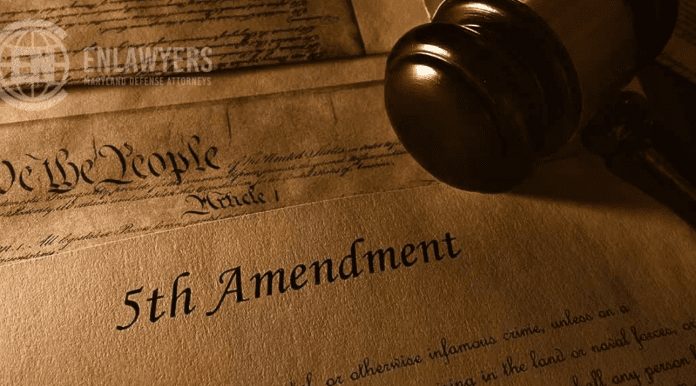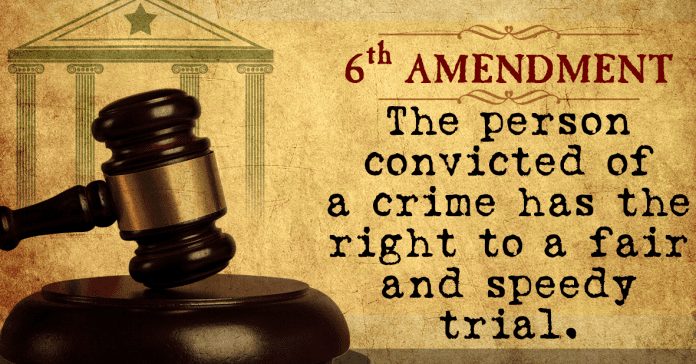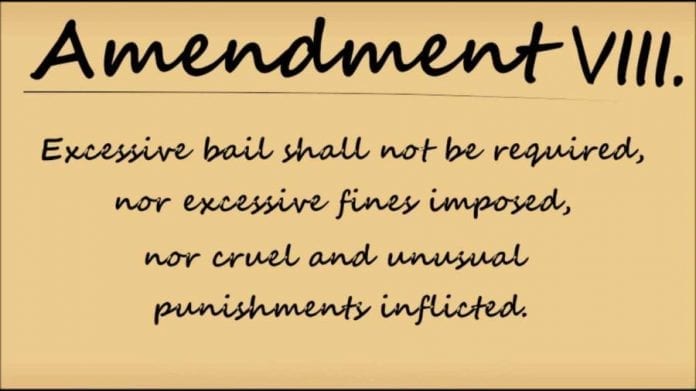Every US citizen is protected by the law equally and unequivocally. The subject becomes a large grey area in the case of undocumented immigrants that get involved with the law.
But there are many ways how the law protects every US citizen that faces criminal charges. The constitution is a very important piece of document that protects your basic rights throughout the process of criminal justice.
The constitution, written by the great American founders, protects you in several ways. Those are:
- The right to a fair trial
- Innocent until proven guilty
- A fair hearing by a grand jury in criminal cases
- Protects you from answering questions that could be used against you in court
- Protects your liberty when threatened
- Setting bail
- And dozens if not hundreds of others.
While these are only a few of the ways how the constitution protects you, it wouldn’t hurt to know how you can protect your legal rights.
In this article, we are going to talk exactly about that. This article will serve you as a guide for 2024, as things are heating up more than ever in the United States.
So, without further ado, let’s start.
Using the 4th Amendment

In criminal defense, it isn’t an uncommon practice for police and special investigators to perform searches on you or your belongings. However, the 4th Amendment protects your rights in a way like no other.
If you aren’t familiar with the 4th Amendment, then do know this is the law that protects you against unlawful searches. What this means is that the police or government must have probably clause to perform searches and seizures.
If the police don’t have probable cause, then everything they’ve found can be used in your favor when in court. What this means is that the items found and seized cannot be used in court if they’ve been seized without any probable cause.
Using the 5th Amendment

The 5th Amendment is probably the most popular one and we regularly see it in use on TV shows. “I plead the 5th”, a short sentence that bears so much power for the defendant.
But what is the 5th Amendment? The 5th Amendment is the law that protects you against self-incrimination. What this means is that the 5th protects your right to remain silent.
“You have the right to remain silent”, another phrase we hear every time a bad guy gets arrested in a police show. But the 5th is made out of two laws, of which the other is double jeopardy.
Double jeopardy protects you from being trialed for the same offense twice. Pretty straightforward but there is a twist to it. Namely, the double jeopardy law might be used against you when brought to criminal court and to civil court for the same offense committed.
Using the 6th Amendment

A very important Amendment right is the right to legal representation. Whenever faced with criminal charges, you always have the right to be legally represented by an attorney.
It doesn’t matter the type of charge, this is god-given right to all American citizens.
When faced with criminal charges, calling an attorney should be one of the first things to do. Criminal defense lawyers focus on this type of law and make it their bread and butter to protect your rights and help you win your case.
Every criminal defense lawyer, such as Miller and Hine Law, understands the constitution and how to use it in your defense.
But the 6th Amendment is made out of three additional laws that protect your rights. The first is the right to a speedy trial, the second is the right to a public jury, and the third is the right to confront witnesses.
Let’s explain them in greater detail
The right to a speedy trial doesn’t specify a time limit where the trial must be completed, but the judge sets time limits for the progress of each case.
The right to a public jury means that you can be tried in an open and public forum where the jury decides your fate. This one is very important as this is where your lawyer comes in handy.
The jury is made out of people living in your community. While every state has different laws regarding juries, the majority respect the 6th Amendment and call upon the community to trial one of their peers.
The right to confront witnesses or accusers is given to the defendant. This right, as the name suggests, gives the defendant the right to confront the person who has witnessed the crime or is accusing of the crime.
This means that the defendant can hear out what the accuser/witness has to say and make a counter-argument against it. In very rare cases can this part of the law be left out and the witness or accuser protected from having to be confronted by the defendant.
Using the 8th Amendment

This Amendment protects each criminally accused to have a reasonable bail set. Also, the 8th protects each defendant from having to suffer cruel and unusual punishments carried out by police or other authorities.
For the first part, bail is set by the judge during the trial and this amount must be reasonable; in regards to the charges. If the person is more likely to flee is bail is paid, then the bail must be set significantly higher than usual. Because of this, there is a lot of controversies related to the 8th Amendment.
There isn’t a clear way to determine how likely a person is to flee the state, so the bail is usually set much higher when dealing with high-profile cases.
The second part goes into effect once the defendant has been accused and trialed. The 8th protects prisoners from being treated differently than any other human being. This is mostly the case when dealing with jail personnel. The 8th guarantees each prisoner their basic human rights.
These are the rights that every US citizen should know if facing a criminal charge.









